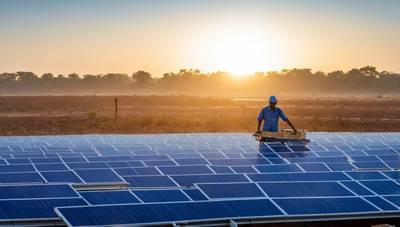Indian solar firms re-engineering their supply chains to avoid US tariffs
Executives report that Indian solar manufacturers are recalibrating supply chains in order to gain access to the lucrative United States markets and to offset higher tariffs.
On August 27, U.S. President Donald Trump imposed tariffs up to 50 percent on the majority of exports coming from India. These are among the highest rates for any U.S. trade partner.
Vikram solar, which sourced solar cells from lower-taxed countries in a Friday call with analysts, explained that it was navigating tariffs by buying its products from those countries.
For solar modules, U.S. tariffs are based on the country where the solar cell was manufactured--specifically, where the cell's PN junction (the part that generates electricity) was formed.
Even if the module is assembled by Indians, the U.S. still applies tariffs according to the country of origin for the cell.
Rinal Shah is a senior executive at Vikram solar. She said, "We are looking for alternative supply chains in countries that have significant cell capacity and lower levies."
The company didn't specify whether the tariffs affected its earnings for the September quarter, but it expressed confidence that they would fulfill U.S. orders in spite of the tariff headwinds.
Waaree Energies is India's largest solar module manufacturer and one of the biggest exporters to the U.S. Waaree Energies said that it did not use domestically produced solar cells in the United States as this would result in higher tariffs.
The U.S. is also investigating the company, alleging that it evaded tariffs on Chinese made panels and cells by labeling them as being from India. Waaree refuted the allegations.
Amit Paithankar, Waaree's CEO, said on a Friday analyst call that the U.S. supply chain is free of China and that the company adheres to all laws and regulations.
Paithankar added, "We've also configured it so that the tariff issues associated with those (exports), are the lowest."
Waaree said that the U.S. investigation and tariffs have not affected its orders yet. (Reporting and editing by Sethuraman NR, Janane Venkatraman).
(source: Reuters)


